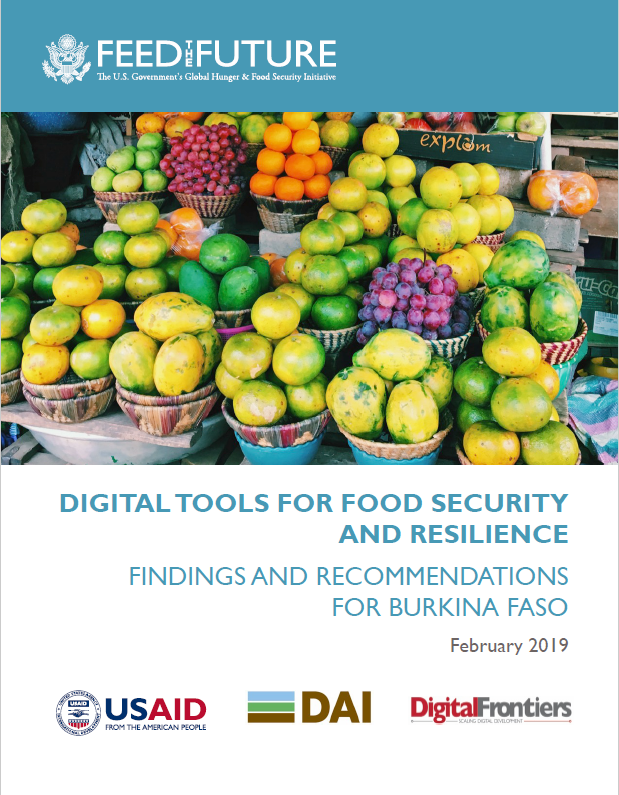Speeches Shim
The USAID Sahel Regional Office (SRO) in Dakar requested the USAID Bureau of Food Security (BFS) and the U.S. Global Development Lab (the Lab) conduct an assessment of the current and potential use of digital tools to enhance the reach and impact of its activities aimed at food security and resilience under the new U.S. Government Global Food Security Strategy (GFSS) country plan for Niger. The assessment was broadened to include USAID/Burkina Faso given its joint resilience programming and relevance as a USAID resilience focus country.
This report covers the first part of the joint assessment, conducted through desk research and a two-week TDY in Burkina Faso. The assessment team, managed by DAI’s Digital Frontiers initiative and supported by Katie Hauser in the Bureau for Food Security, found a relatively strong and growing digital ecosystem in Burkina Faso. The level of mobile usage, strength of local service providers, and range of digital available exceeded the assessment team’s expectations and suggests a wide range of opportunities to leverage digital tools to accelerate progress toward USAID’s food security and resilience objectives in the country.
Because this is a public document, some names and contact information of people and companies have been omitted. If you have any questions about contact information, contact Katie Hauser, USAID BFS, khauser@usaid.gov. Note that this document covers work done in November and December 2018. Conditions and activities after that date range are not reflected.
Burkina Faso has relatively strong mobile access: it is nearly on par with its regional neighbors in regard to mobile phone users, smartphone connections, and use of the Internet via mobile. Two-thirds of the country is covered by at least 3G connection speeds. There is good competition among the mobile network operators. Mobile money usage is strong, with a higher percentage of Burkinabes actively using their mobile money accounts than their regional neighbors – although a persistent gender gap exists.
Adding to this, there is a good market of local and international service providers with tools adapted to the context, including data collection tools that work offline and in multiple languages; drone service providers taking advantage of sound regulation to help farmers manage their plots from the sky; and companies providing low-cost radio, video, and interactive voice response (IVR.
Lastly, there are signs of continuing government commitment to digital. For example, the government is partnering with the World Bank on the eBurkina initiative and on an effort to create a Smart Villages activity planned for 2020. In addition, the Ministry of Agriculture is in the midst of a ministry-wide effort to manage multiple digitally enabled agriculture services including applications for market prices, extension, and inputs.


Comment
Make a general inquiry or suggest an improvement.